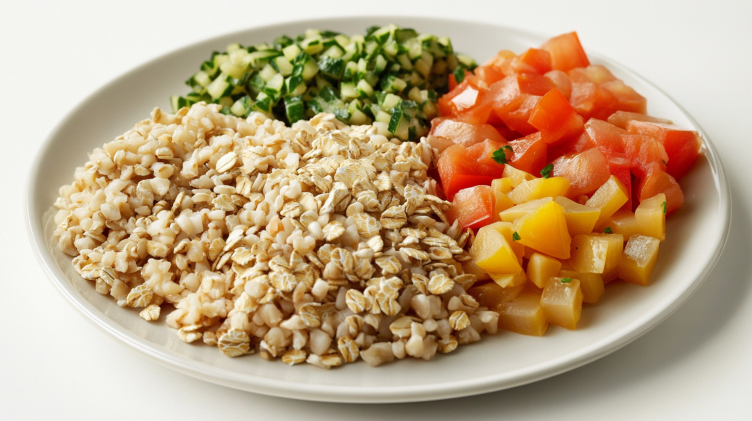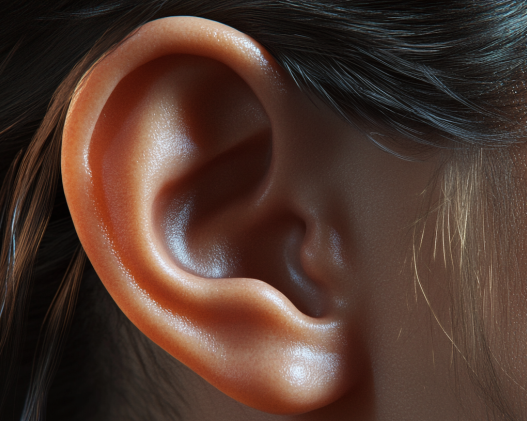We all know how important weight is to our overall health. But why do some people seem to gain weight effortlessly while others struggle to lose it despite similar eating and sleeping patterns? The truth is, certain everyday habits can play a key role in maintaining a healthy weight and even help improve your overall health without you even noticing. How many of these habits do you follow?
1.Eat Breakfast Before 9 AM
A 2024 study published in Cell found that skipping breakfast can lead to excessive absorption of lipids by small intestine cells, increasing the risk of obesity and metabolic diseases. The Chinese Resident Health Weight Management Action Plan also highlights that skipping breakfast or eating late at night can lead to weight gain. It’s recommended to finish breakfast by 9 AM.

2.Drink 6-8 Cups of Water Daily
Water is an essential part of our metabolism. It aids in fat burning; to metabolize just 1 kilogram of fat, our body needs 10 liters of water. Insufficient water intake can slow down metabolism. A 2024 study in the Journal of the American Medical Association found that drinking 6 cups of water a day can assist with weight loss, and prevent kidney stones, headaches, urinary infections, and low blood pressure. Aim to drink 6-8 cups (around 1500-2000 milliliters) daily. If plain water is unappealing, add a slice of lemon or mint, or opt for light tea.

3.Don’t Sit for More Than 40 Minutes
Prolonged sitting can harm your health, but simply breaking it up with a bit of movement can improve your wellbeing. After sitting for about 40 minutes, stand up and stretch, walk, or get some water. Long periods of sitting contribute to excess calorie intake, abdominal obesity, and even fatty liver. Sitting too long slows down circulation, which may reduce muscle tone, especially in your limbs. Even if your overall weight doesn’t change drastically, you may notice your arms and legs becoming thinner while your waistline expands.

4.Eat More Whole Grains
Include whole grains such as oats, barley, rye, brown rice, and corn in your meals. A 2021 study published in The Journal of Nutrition followed over 3100 participants for an average of 18 years and found that a higher intake of whole grains was associated with a lower risk of increased waist circumference, lower fasting blood sugar, and lower systolic blood pressure.

5.Chew Your Food Slowly
Taking time to chew your food can help maintain a healthy weight. Research shows that fast eaters tend to have higher body mass indexes (BMI), larger waists, and more visceral fat than those who eat slowly. The Weight Loss Action Plan also suggests that fast eating is linked to obesity, particularly abdominal obesity, and recommends that each meal should take at least 20 minutes.

6.Don’t Lie Down After Meals
Standing for a while after eating can benefit your health by burning calories. A 2023 study published in the International Journal of Environmental Research and Public Health found that standing for 30 minutes after a meal leads to a higher energy expenditure compared to sitting. Standing burns 0.16 kilocalories per minute more than sitting.
7.Eat Dinner Earlier
A 2020 study published in Clinical Endocrinology and Metabolism compared two groups of volunteers who ate identical meals at different times: one group had dinner at 6 PM, and the other at 10 PM. The results showed that the later dinner group had higher blood sugar levels and burned less fat compared to those who ate earlier. Therefore, simply adjusting your dinner time can help prevent weight gain.

8.Avoid Sleeping with the Lights On
A 2019 study published in The Journal of the American Medical Association tracked 43,000 women for 5.7 years and found that those who slept with lights or a TV on had a higher risk of gaining weight. The risk of gaining over 5 kg and becoming overweight or obese increased by 17% and 22%, respectively, compared to those who slept in darkness.

Research screenshots
9.Sleep Before 10 PM
Some obesity may be “self-inflicted” through late nights. A 2021 study in The Journal of the American Medical Association found that people who went to bed after 10 PM had a 20% higher risk of obesity and abdominal fat compared to those who went to bed between 8 PM and 10 PM. The risk increased by 35% for those going to bed after 2 AM.

10.Get 7 Hours of Sleep
The Weight Loss Action Plan emphasizes that sleeping less than 6 hours increases obesity risk, while 7 or more hours of sleep helps with weight loss, particularly in preventing abdominal obesity.

Conclusion
Achieving and maintaining a healthy weight doesn’t have to involve strict dieting or intense exercise routines. Instead, it’s about incorporating simple, daily habits into your routine. From eating breakfast early to staying hydrated and getting enough sleep, small changes can have a big impact. By following these habits consistently, you can effortlessly lose weight, prevent weight gain, and improve your overall health. Start making these habits part of your life today for lasting, sustainable results.



















